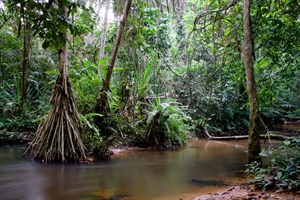Did you know that people in the tropics have a life expectancy that is nearly eight years shorter than people living in more temperate regions? The report State of the Tropics tells us that this is in part owing to developmental challenges; but the climate is also hard on the human body, visitors as well as residents. Follow our guidance to make your visit to a tropical region safer and more comfortable.
Acclimatize to the heat
Tropical countries are warm and moist, which makes them appealing to those of us used to Alberta’s cool, dry climate. The heat and humidity can also be incredibly challenging. Allow about ten days to fully acclimatize to the higher temperatures, with a few relaxing days before you try anything too strenous.
You should be aware of the symptoms of heat exhaustion, which occurs when the body gets too hot. They can come on very quickly and include: faintness, tiredness, headache, muscle cramps, nausea, thirst, raised pulse, dark urine and heavy sweating.
If someone with you is suffering from heat exhaustion, lie them down in a cool place. They should remove clothing and moisten their skin to cool down. They should drink some fluids, too.
Heat exhaustion may progress to heat stroke, which can be fatal. The patient may lose consciousness, in which case, put them in the recovery position and get medical help.
Sunscreen
The clear, intense light in the tropics is very appealing to those of us used to Canada’s cooler climate. Some sunlight is good for you because it helps your body to make vitamin D. However, sunlight in the tropics is more intense than at Alberta’s latitude, and that means there’s an increased risk of sunburn. Sunburn increases your risk of skin cancer in later life and so you should avoid it.
Seek shade between 11am and 3pm, and cover up with clothing and a wide-brimmed hat. The Government of Canada has some Sun and heat safety tips for travellers.
Fevers
There are a number of feverish illnesses that you can contract in the tropics, including malaria, Dengue fever, yellow fever and Chikungunya. If you come down with flu-like symptoms on your trip, consult a healthcare professional. You should also see a doctor if this happens within a couple of weeks of your return to Canada – and let them know where you have been as this will help them to make a diagnosis.
Wet and dry season travel
There are two seasons in a tropical climate, a wet season and dry season, and the differing conditions cause different health problems. For example, when you go to parts of Africa during the dry season a shot against meningococcal meningitis may be recommended because the dusty, cooler conditions mean respiratory illnesses are more common. And mosquito-borne illnesses, such as malaria and Dengue fever, are more common during or just after the wet season.
For this reason, your travel health adviser will give you different recommendations depending on what time of year you are travelling, so it’s worth getting advice six to eight weeks before every trip, even if you’ve been to that place before.

